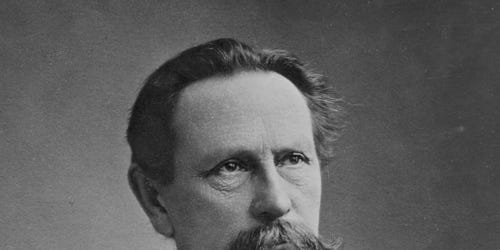Have you ever wondered who invented the car? It’s a question that might seem simple, but the answer is a fascinating Story About Innovation, perseverance, and a little bit of luck. Karl Benz, a German engineer born in 1844, is widely credited as the “Father of the Automobile.” His name might not be as instantly recognizable as some other inventors, but his impact on our world is undeniable.
Benz wasn’t just tinkering around in a garage; he was a dedicated and brilliant mind who spent years developing his vision for a self-Propelled Vehicle. In 1885, he achieved what many thought impossible: he designed and built the first practical automobile powered by an internal Combustion Engine. This groundbreaking achievement was met with both excitement and skepticism. Some people couldn’t imagine a world without horses and carriages, while others saw the potential for this new invention to revolutionize transportation.
Benz’s Journey wasn’T Easy. He faced financial challenges and resistance from those who doubted his ideas. But he never gave up on His Dream. With the support of his wife Bertha, who famously took their Motorwagen on a groundbreaking 66-mile journey in 1888, Benz persevered and eventually received a patent for his invention in 1886. This marked a turning point in history and paved the way for the Karl Benz Inventions that would shape the world we Know Today.
Early Life and Engineering Career
Before Karl Benz became a household name for his revolutionary car, he was just a young boy with a passion for tinkering and Building Things. Born in 1844 in Germany, Benz showed an early interest in mechanics and engineering. He excelled in school, particularly in math and science, which laid the foundation for his Future Success. After completing his education, Benz embarked on a career as an engineer, working for various companies where he honed his skills and gained valuable experience.
Benz’s early engineering work focused primarily on engines, particularly stationary ones used in factories and mills. This experience proved to be crucial for his later endeavors. He learned the intricacies of combustion, Power Transmission, and mechanical design, which would become essential components in His Groundbreaking Automobile Invention. While working as an engineer, Benz continued to explore his passion for innovation outside of his regular job. He spent countless hours in his workshop, experimenting with new ideas and designs, always pushing the boundaries of what was possible.
The Birth of the Motorwagen
The year 1885 marked a pivotal moment in history as Karl Benz brought his vision To Life. After years of tireless work and experimentation, he successfully built the first practical automobile powered by an internal combustion engine. This revolutionary vehicle, known as the Motorwagen, was a far cry from the clunky horse-drawn carriages of the time. It featured a lightweight chassis, Three Wheels, and a compact engine that produced a modest amount of power.
Benz’s design was ingenious in its simplicity. The single-cylinder engine sat at the front of the vehicle and drove the rear wheel through a system of gears and belts. This arrangement allowed for smooth acceleration and relatively good handling for the time. While the Motorwagen wasn’T Particularly Fast, reaching a top speed of around 10 Miles Per Hour, it was a groundbreaking achievement nonetheless. It proved that an automobile powered by an internal combustion engine could be both practical and reliable.
Bertha’s Historic Journey
The year 1888 saw a remarkable journey that propelled Karl Benz’s invention into the public eye. Bertha Benz, Karl’s wife and a strong supporter of his work, decided to take their Motorwagen on an ambitious 66-mile trip from Mannheim to Pforzheim, Germany. This wasn’t just a leisurely drive; it was a daring demonstration of the car’s capabilities and a testament to Bertha’s unwavering belief in her husband’s vision.
Bertha meticulously planned the journey, mapping out the route and ensuring they had enough fuel and supplies. She even took along spare parts and tools, anticipating potential issues on the road. During their trip, Bertha faced numerous challenges, Including Navigating Unfamiliar Roads, running out of fuel, and encountering skeptical locals who had never seen a car before. But she persevered, demonstrating remarkable courage and ingenuity in Overcoming These Obstacles.
 Karol G Genre, Date of Birth & Rise to Fame
Karol G Genre, Date of Birth & Rise to FameBertha’s journey was a resounding success, proving that the Motorwagen could be used for practical purposes and that it was capable of long-Distance Travel. News of her adventure spread quickly, generating widespread interest in Karl Benz’s invention and paving the way for the mass adoption of automobiles.
Competition and Legacy
As the automobile gained popularity, Karl Benz faced increasing competition from other inventors and companies who saw the potential in this new technology. The early 20th century witnessed a surge in car manufacturing, with numerous brands vying for market share. Benz & Co., initially focused on stationary engines before Shifting To Automobiles, had to adapt and innovate to remain competitive in this rapidly evolving landscape.
Despite facing challenges, Benz’s Legacy Endured. His pioneering work laid the foundation for the modern automobile industry. In 1926, Benz & Co. merged with Gottlieb Daimler’s company, forming Mercedes-benz, one of the most renowned and successful automotive brands in the world. Today, Mercedes-benz vehicles are synonymous with luxury, performance, and innovation, a testament to Karl Benz’s enduring impact on transportation and technology.
A Lasting Impact on Automotive History
Karl Benz’s contributions to automotive history are immeasurable. His invention of the first practical automobile not only transformed transportation but also sparked a revolution in industry and society. The automobile opened up new possibilities for travel, commerce, and leisure, connecting people and places in ways Never Before Imagined.
The impact of NegritaBenz’s work continues to be felt today. Modern automobiles are a testament to his ingenuity and vision, incorporating advanced technologies and safety features that were unimaginable in his time. From the sleek sports cars to the rugged SUVs, the diversity of vehicles on our roads is a direct result of Benz’s Pioneering Efforts. His legacy serves as an inspiration to inventors and engineers around the world, reminding us that even seemingly impossible ideas can become reality with determination and perseverance.










